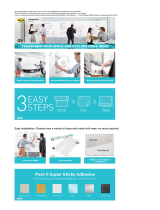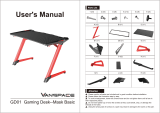your Kindle's external speakers or plug in earphones into the headphone jack. While Text-to-Speech is playing, the screen will
turn the pages automatically so you can follow along while the audio is playing. You have the choice of hearing your content
spoken with a male or female voice and can also further optimize the listening experience by slowing down or increasing the
rate of speech.
Voice Guide complements Text-to-Speech by allowing you to navigate Kindle with spoken menus, selectable items, and
descriptions. Using Voice Guide, you can navigate your Kindle while Kindle speaks actions, descriptions, or status messages.
For example, when you open a book, Kindle tells you your current location and how far you've read. See
“Using Voice Guide”
in Chapter 7 for instructions on using this feature.
Look It Up
Your Kindle includes two dictionaries - The New Oxford American Dictionary (the default) and the Oxford Dictionary of
English. You can easily look up a particular word without leaving the content. Simply use the 5-way controller to navigate the
cursor in front of the word you want defined. A definition of the word appears at the bottom or top of the screen. To view the
full definition, press the Return key
on the keyboard. To return to the text you were reading, press the Back button. To
choose a different default dictionary, see
“Choosing Your Primary Dictionary” in Chapter 7.
Take It All with You
Kindle can store thousands of digital books, personal documents, newspapers, blogs, magazines, and audiobooks, which are
referred to collectively as "content" throughout this guide. A copy of all your books and recent issues of newspapers and
magazines purchased from the Kindle Store are kept on Amazon.
To display the list of content on your Kindle, press the Home button. Use the 5-way controller to underline the item you want to
open and then press the 5-way to open the item. To delete content on your Kindle, use the 5-way controller to underline the item
you want to delete. Press the left arrow on the 5-way to select “remove from device” and then press the 5-way to complete the
removal of the item.
To transfer previously deleted content from Amazon back to your Kindle, the wireless Whispernet service must be on. From
Home, select "Archived Items." This shows all of the content stored at Amazon. Amazon does not store copies of your personal
documents, periodical issues older than the past seven issues, MP3, and Audible files, so make your own backup copies of those
files. Underline the item you want to move back to your Kindle and press the right arrow on the 5-way to select “add to home”
and then press the 5-way to start the transfer. In under a minute, the item re-downloads into your Kindle and appears in the list
of content in Home.
Shop Anytime, Anywhere
If you have Whispernet on and you select "Shop in Kindle Store" from any menu, Kindle connects you to a broad offering of
reading material including books, newspapers, blogs, and magazines. You can browse by category or check out the latest
bestsellers, new and noteworthy items, or your personalized recommendations. You can see details about an item, read customer
reviews, and even download free samples of books you are interested in. If you want to buy an item, Kindle uses secure
Amazon 1-Click and then Whispernet delivers the item to your Kindle generally in under a minute.
Automatic Delivery
Since Kindle connects to the Whispernet network, we deliver your favorite periodicals over the air to your device as soon as
they are published, often before they are even available in print. For example, if you subscribe to the Kindle edition of The New
York Times, the latest edition is wirelessly delivered overnight so you can read it each morning. Your favorite periodicals
follow you wherever you go, whether you are at home or on the road.
If you have a Kindle model that only uses Wi-Fi to connect to Whispernet, your Kindle must be connected to a Wi-Fi network
in order to receive your periodicals when they are published. If no Wi-Fi network is available at your current location, your
periodicals will be automatically delivered to your Kindle the next time you connect to a Wi-Fi network.


























